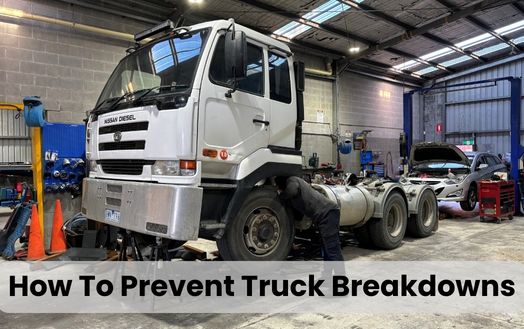
When it comes to truck maintenance, the line between smooth rides and unexpected breakdowns can be thin. We all want our vehicles to operate efficiently and reliably, but how do we achieve that elusive goal?
By following a few key practices, we can significantly reduce the risk of truck breakdowns, ensuring peace of mind and cost savings in the long run. Let’s explore some essential strategies on how to prevent truck breakdowns, no matter the journey ahead.
Why are truck inspections essential for preventing breakdowns?
Proactive maintenance strategies for trucks rely on regular inspections. By detecting issues early, thorough inspections prevent costly breakdowns. Preventive maintenance is necessary to avoid problems and keep the truck running smoothly.
Regular maintenance checks for minor issues before they become major ones extend the vehicle’s lifespan. By following a routine inspection plan, you can quickly address wear and tear and avoid costly emergency repairs that can disrupt operations. Truck maintenance requires proactive rather than reactive thinking.
A proactive maintenance routine that includes regular inspections can save you time and money. Thorough inspections and prompt repairs reduce the likelihood of unexpected breakdowns. A well-maintained truck performs better, improving driver and road safety. Truck maintenance prevention is always better than cure.
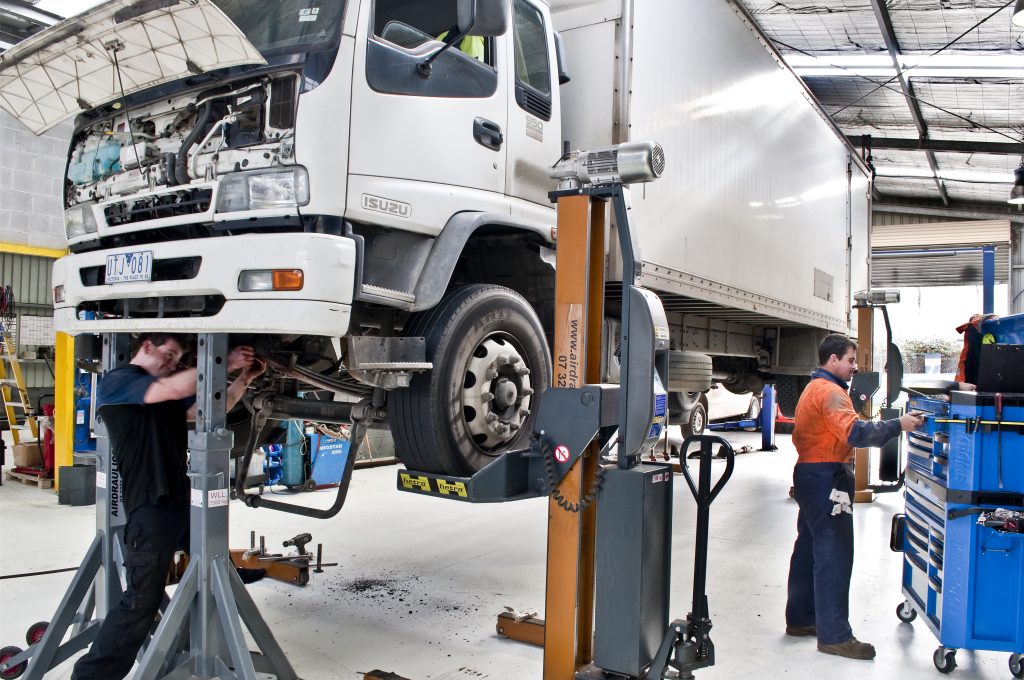
Truck performance and safety. Proper tire pressure is required to prevent breakdowns and improve fuel efficiency. Regularly checking tire pressure can prevent uneven tire wear, costly replacements, and unexpected blowouts.
Tyre pressure checks are a simple but effective way to keep your tires running. We recommend checking tire pressure on a monthly basis or prior to long trips. Use a reliable tyre pressure gauge to match the manufacturer’s recommendations. This simple precaution can prevent road issues.
Innovative tyre pressure monitoring systems make this task easier. Trucks with real-time tyre pressure sensors alert drivers to any deviations from the optimal range. These technologies improve safety and save time by streamlining monitoring.
Monitoring the brake system is crucial for truck safety and performance. The brake system needs regular maintenance to avoid problems and maximise performance. Monitoring the brake system’s health helps identify and fix problems, reducing the risk of unexpected breakdowns and improving road safety.
Regular brake system monitoring includes checking brake pads, rotors, callipers, and fluid levels. Visible wear and tear, such as thinning brake pads or leaking brake fluid, may indicate repair needs. Routine brake tests and diagnostic checks can also detect issues early, allowing for timely maintenance and repairs to prevent larger problems.
Using innovative brake system monitoring technologies can improve prevention. Advanced sensor systems can monitor brake performance in real time, enabling proactive maintenance based on usage and wear. Predictive analytics and machine learning algorithms can predict brake system failures, preventing breakdowns and maximising truck uptime.
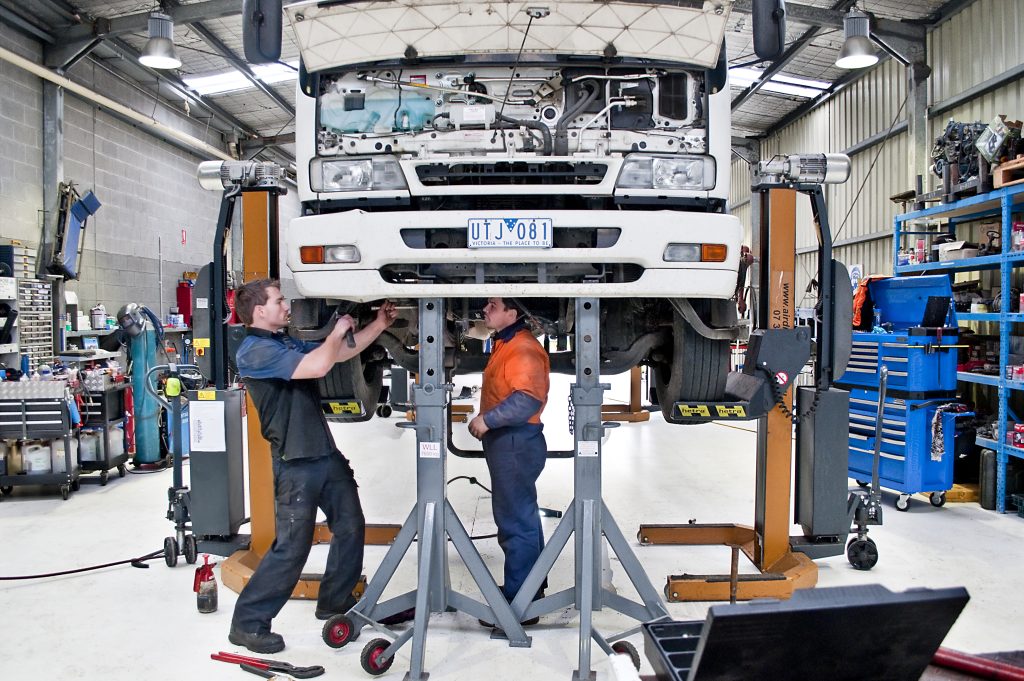
In addition to monitoring the brake system, truck coolant level maintenance prevents overheating and engine damage. Coolant is used to regulate engine temperature, prevent overheating, and improve performance. Trucks can overheat due to low coolant, which can damage the engine if not fixed.
Regular coolant levels and quality checks are essential for preventative maintenance. To avoid roadside breakdowns, investigate and fix coolant leaks immediately. Maintaining the cooling system requires following the manufacturer’s coolant type and replacement interval recommendations.
New coolant technologies are more durable and efficient, protecting the engine from overheating. Some coolants have corrosion-prevention and heat-transfer additives to improve cooling system performance.
Maintaining proper oil change intervals is essential for truck engine longevity and performance. Truck maintenance requires regular oil changes to keep engine oil clean and lubricate engine parts. Proactive oil changes can prevent breakdowns and improve vehicle reliability for truck owners.
Here are four reasons why oil changes are essential for the health of a truck’s engine:
Advanced synthetic engine oils provide superior protection and longevity due to engine oil technology innovation. Adopting these innovations and following the recommended oil change intervals can extend a truck’s engine life and improve road reliability.
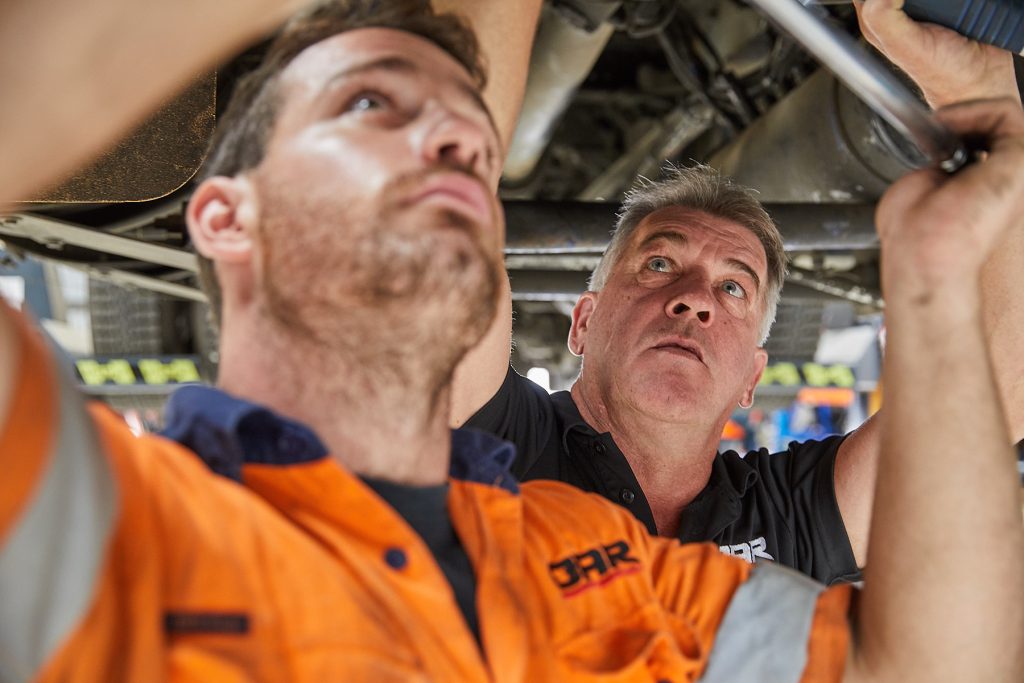
Diesel engines need regular maintenance to perform well. Let’s discover more on how to prevent truck breakdowns. Consider these diesel engine maintenance tips for smooth operation:
First, regular oil changes prevent engine wear and lubricate moving parts. Periodically replace fuel filters to maintain fuel efficiency and prevent contaminants from entering the engine. Preventing engine damage and overheating necessitates checking coolant levels and cooling system functionality.
Checking and replacing air filters is an essential part of diesel engine maintenance. A proper air-fuel mixture from clean air filters improves engine performance. Replace worn belts and hoses to avoid unexpected breakdowns and costly repairs. The manufacturer’s recommended maintenance schedule for your diesel engine is essential for longevity and reliability.
Regular checks for leaks, unusual noises, and smoke emissions can prevent major engine failures. Finally, high-quality diesel fuel and additives improve engine performance and prevent fuel system issues. These maintenance tips can keep your diesel engine running smoothly and prevent breakdowns.
We must monitor coolant levels and conduct cooling system inspections on diesel engines to prevent overheating. Overheating can damage engines and cause unexpected breakdowns. Innovative truck overheating prevention tips:
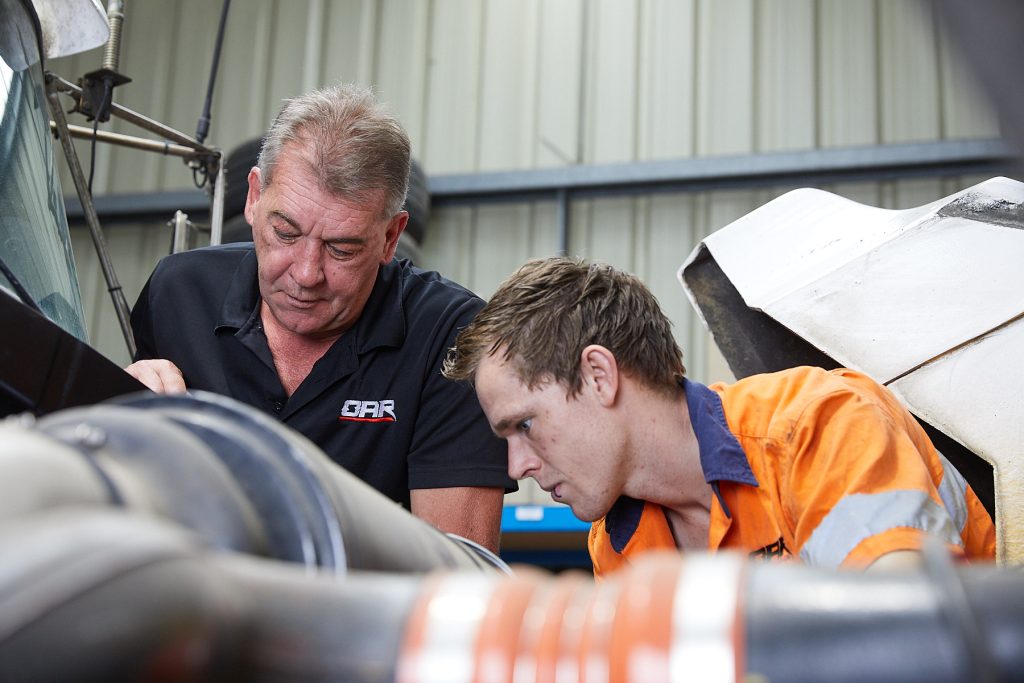
Understanding air filter replacement guidelines is essential for truck engine longevity and performance. Air filters keep engine contaminants out, and cabin air is clean. To keep air filters clean and efficient, inspect them regularly. Fleet managers should proactively maintain air filters to avoid roadside breakdowns.
Fleet managers must regularly inspect air filters. Change filters as recommended by the manufacturer, or more frequently if the truck operates in dusty or difficult conditions. Neglecting air filter replacements can reduce fuel efficiency, engine performance, and cabin air quality. Fleet managers can prevent issues and prolong truck life.
Guidelines for replacing air filters in routine maintenance can greatly reduce roadside assistance. Fleet managers can improve vehicle reliability by addressing this maintenance issue. Prioritising air filter replacements shows proactive maintenance and fleet management innovation. These guidelines will help fleet managers improve truck performance, safety, and efficiency.
Fix oil leaks immediately to prevent engine damage and optimise truck performance. Oil leaks can cause costly repairs and unexpected breakdowns, reducing fleet efficiency and causing roadside delays.
Here are four innovative ways to address oil leaks effectively:
Quickly fixing oil leaks extends the life of your truck and improves fleet efficiency. To avoid problems and downtime.
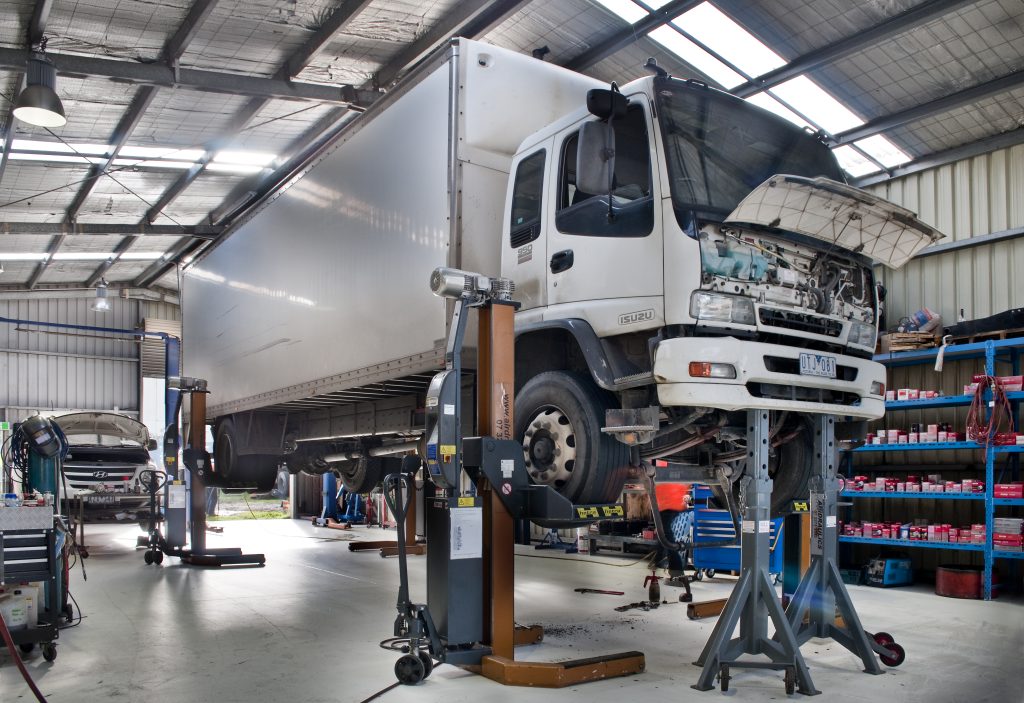
Our team responds quickly to roadside emergencies to ensure fleet safety and efficiency. Emergency breakdowns are critical, so we prioritise quick and effective solutions to keep our trucks moving. We prioritize truck drivers’ well-being because they power our business.
Poor tyre pressure can cause emergency breakdowns. Our team emphasizes the importance of truck drivers checking and maintaining tire pressure to mitigate this risk. Drivers can greatly reduce tyre-related breakdowns by adding this simple but crucial step to their routine.
To avoid roadside emergencies, we must regularly inspect our vehicles and monitor tyre pressure. These proactive checks help us spot and resolve issues before they become major ones. Predicting maintenance needs helps us maintain fleet safety standards.
To maximise fleet efficiency and longevity, we prioritise regular vehicle maintenance. We can greatly reduce roadside truck emergency breakdowns by implementing proactive maintenance strategies.
Here are some key ways to develop reliability and performance while avoiding breakdowns:
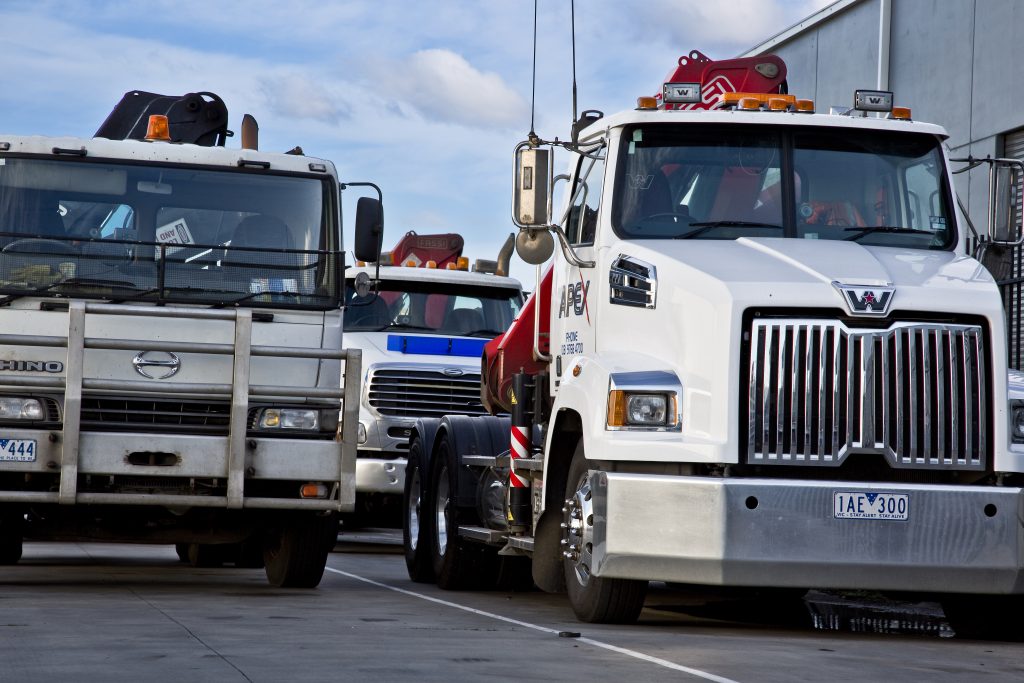
Safe and efficient road operations. To reduce truck breakdowns, commercial truck drivers must prioritize proactive maintenance. Regular inspections of tires, brakes, lights, and fluids are crucial to identify issues early and prevent expensive repairs. We must monitor wear and tear to extend the lifespan of fleet commercial trucks.
Commercial truck drivers should optimise their driving habits to reduce vehicle stress. Avoid sudden accelerations and stops, maintain a steady speed, and consider the truck’s weight distribution. Reliable drivers reduce the risk of breakdowns due to critical part wear.
Commercial truck operations can be more efficient and reliable with technology and innovative solutions. Telematics, software updates, and driver training can streamline a trucking fleet. These modern innovations boost performance and prevent road breakdowns.
How to prevent truck breakdowns? By prioritizing regular inspections, monitoring tire pressure, brakes, coolant levels, and oil changes, truck breakdowns can be significantly reduced. Addressing issues promptly and handling emergency roadside situations effectively are also crucial.
By following these maintenance tips, commercial truck drivers can extend the lifespan of their vehicles and ensure smooth operations on the road. Remember, prevention is key to avoiding costly breakdowns and ensuring safety on the highways.
Drivers must recognise common signs. Warning lights, unusual noises, or performance changes may signal a breakdown. These signs need regular maintenance and attention to avoid major issues.
To avoid breakdowns, monitor fluid levels, tire pressure, and brakes. To minimise breakdowns and ensure smooth operations, our team prioritises proactive measures.
Through proactive maintenance, we can protect our cars from extreme weather. Regular fluid and tyre pressure checks are essential.
Covering trucks or using protective coverings can also help. Advanced weather monitoring technology predicts severe weather, so take early precautions.
Older trucks should prioritize maintenance tasks more often to optimise performance. Regular engine, brake, tyre, and suspension checks can detect problems early.
Scheduled oil changes, filter replacements, and electrical system inspections are crucial. We can extend truck life and reduce road breakdowns by being proactive with maintenance.
It’s important to fix a truck noise or vibration right away. Ignoring these signs could worsen matters.
We should stop safely, find the problem, and decide whether to continue driving. When in doubt, consult a mechanic.
Proactive maintenance prevents breakdowns and makes travel safer.
We use innovative methods to secure cargo and prevent shifting load breakdowns.
Advanced security methods and equipment protect our cargo from unexpected movements during transit. Maintaining stability requires regular load inspection and adjustment.
Our proactive approach reduces breakdowns, ensuring efficient goods transportation.